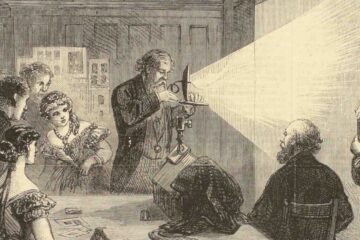In this opinion piece co-authored with Peter Rutland, I reflect on the National Archives’ censoring of the messages on protest signs in a photo taken at the Women’s March in January 2017. This action was swiftly and universally condemned by professional historians and curators. It both transpired in our era of “fake news” and is part of a long tradition of contestation and controversy surrounding public history.
Images matter. They crystallize ideas and spur powerful emotional responses, and have often been used by protest movements to rally public attention to their cause. The 2017 Women’s Marches across the country saw an impressive variety of innovative visual creations encompassing image and text, including the oft-reproduced pussyhats. Some of these objects have been collected by museums, including London’s Victoria and Albert Museum. […]
By digitally blurring the slogans on the posters, the National Archive curators were erasing those voices from the public historical record.
Read more in artnet news.



0 Comments